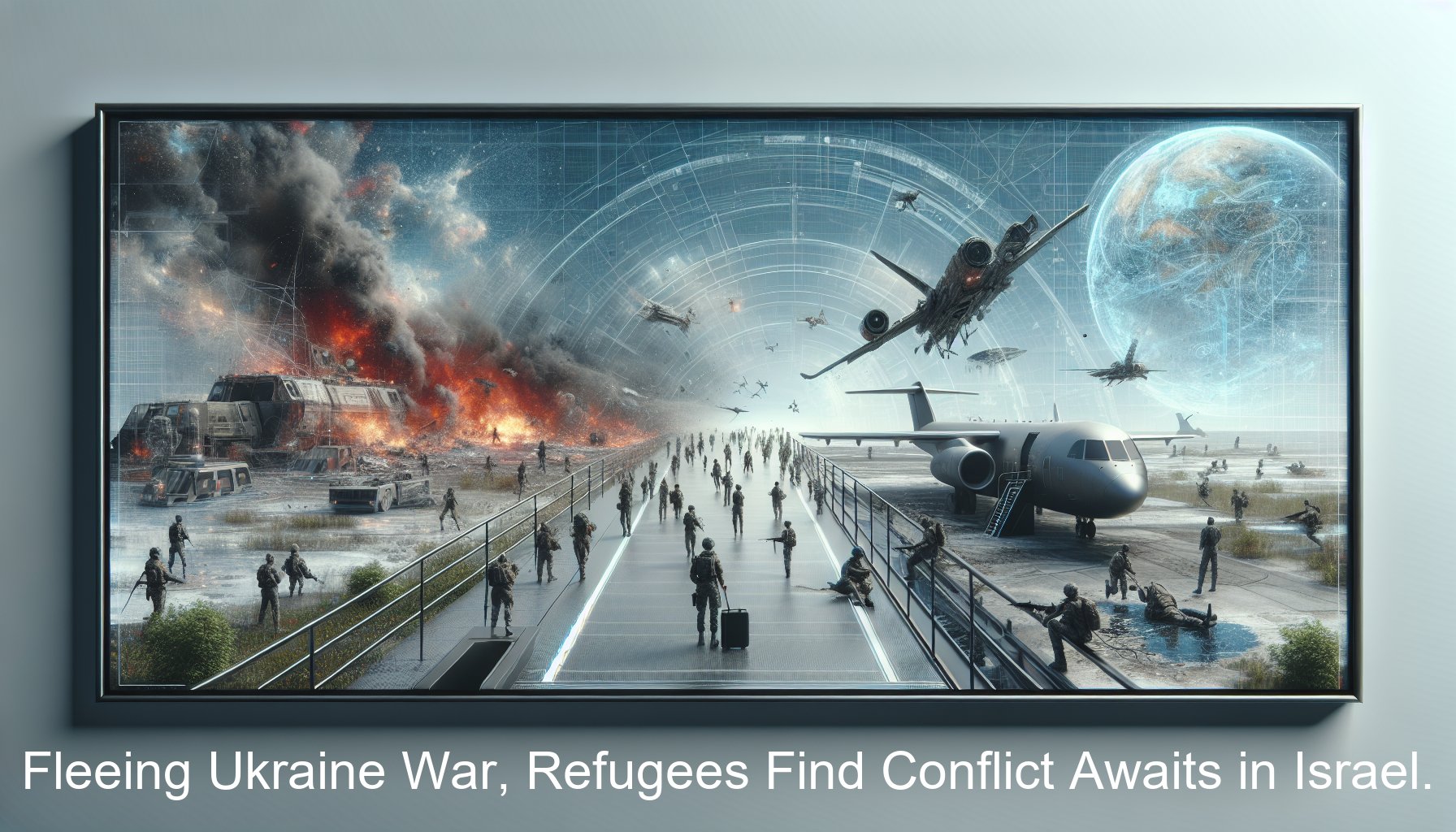Title: They Escaped War in Ukraine. It Found Them in Israel: The Unforeseen Intersection of AI Technology and Geo-Politics
The advent of artificial intelligence (AI) has profoundly transformed various aspects of contemporary society, including politics, economic systems, and social interactions. This article will shed light on a unique scenario wherein Ukrainian refugees, who fled their homeland due to war, found themselves embroiled in a similar conflict in Israel, and how AI technology is playing a pivotal role in these geopolitical predicaments.
In the past few years, Ukraine has been a battlefield, with fighting between Ukrainian forces and Russian-backed separatists leading to dozens of deaths and displacing thousands of people. Many Ukrainians sought refuge in Israel, hoping for a peaceful life away from their war-torn country. However, they found themselves caught up in another conflict, as tensions between Israel and Palestine escalated.
AI technology, which has been widely adopted in various fields, has inevitably found its way into the military sector. Both Ukraine and Israel have integrated AI into their defense mechanisms, using it to predict enemy tactics, enhance their surveillance systems, and improve their weaponry. However, the use of AI in warfare has also raised ethical and humanitarian concerns.
The AI systems used by the military are capable of collecting and analyzing vast amounts of data, making it possible to predict enemy movements and strategies. This technological advancement has undoubtedly bolstered the defense capabilities of both Ukraine and Israel. Still, it has also escalated tensions, as it allows for more precise and deadly attacks. For instance, in the Israel-Palestine conflict, AI-powered drones have been used to carry out targeted assassinations, leading to an increase in civilian casualties.
Moreover, these AI systems are also used to monitor the populace, raising privacy and human rights issues. In Ukraine, AI surveillance systems have been deployed to keep an eye on the separatist-controlled territories. In Israel, similar systems are used to monitor the activities of Palestinians in the occupied territories. These practices have been criticized by human rights organizations, who argue that they infringe upon the privacy rights of the individuals under surveillance.
Furthermore, the use of AI in warfare has also sparked a debate about the ethical implications of autonomous weapons. These weapons, capable of identifying and attacking targets without human intervention, pose a significant threat to civilian populations. The potential for collateral damage and the lack of accountability in the event of unlawful killings have made the use of autonomous weapons a controversial issue.
Interestingly, the Ukrainian refugees in Israel find themselves at the crossroads of these AI-induced conflicts. Fleeing from one AI-enhanced war to another, these refugees are a testament to the pervasive impact of AI technology in warfare and geo-politics.
In conclusion, while AI has undoubtedly revolutionized defense mechanisms and warfare strategies, its use in conflicts has raised significant ethical, humanitarian, and privacy concerns. As the world grapples with these challenges, the story of Ukrainian refugees in Israel serves as a stark reminder of the need to regulate the use of AI in warfare to protect civilian populations and uphold human rights.
The intersection of AI technology and geo-politics is a complex one, warranting further analysis and discussions. It is incumbent upon the global community to ensure that the deployment of AI in warfare does not exacerbate conflicts but instead contributes to their resolution, thereby safeguarding the lives and dignity of individuals worldwide.
